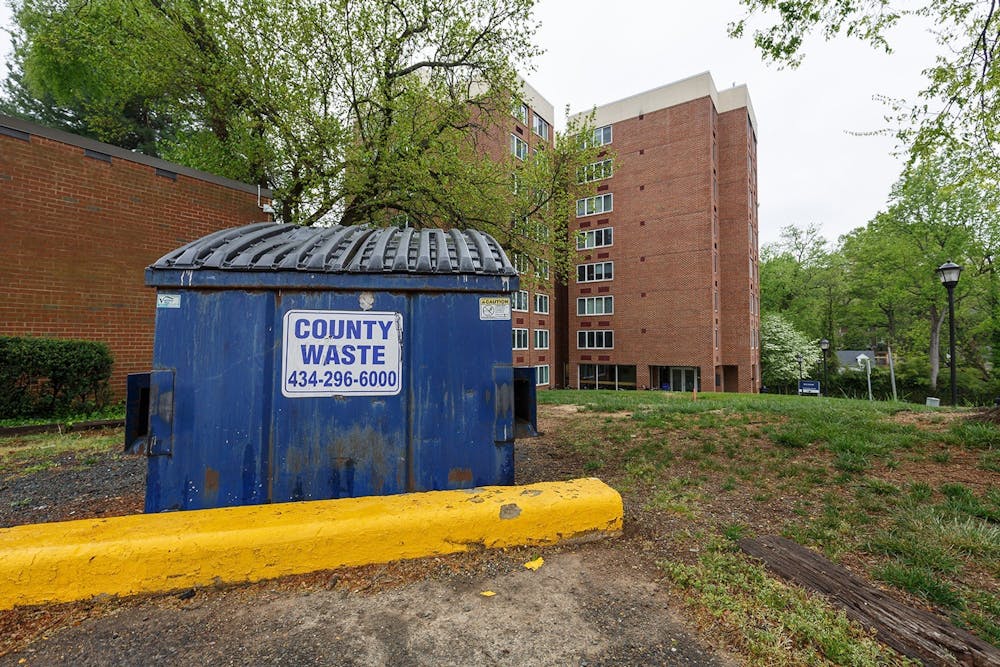As students at the University move back in, trash cans and dumpsters overflow with discarded furniture and waste. Instead of tossing unwanted items in the trash, the Hoos ReUse program and Refurnished Charlottesville offer new extensive alternative options — donating goods to second-hand stores and organizations which accept gently used items in Charlottesville and Albemarle County.
In 2018, the U.S. was the leading importer of furniture in the world, leading to an enormous carbon footprint — deforestation, burning fossil fuels for plastic production, emissions from shipping and more — and much of it was scrapped. Americans discarded 12.2 million tons of furniture in 2017, of which 80 percent ended up in landfills.
For on-Grounds students, donating items has been made convenient through the U.Va. Office of Sustainability’s Hoos ReUse program. Through the initiative, unwanted smaller items are resold by Goodwill, while Refurnished Charlottesville gives discarded furniture a new home, according to Lela Garner, the Office of Sustainability’s Student Outreach and Engagement Specialist.
Refurnished Charlottesville is a local nonprofit that works alongside the Hoos Reuse program, taking care of the entire donation process from pickup to cleaning to delivery. Logan Bowers, president of Refurnished Charlottesville and rising fourth year College student, explains that there is no shortage of community members who could benefit from a free or discounted piece of furniture or household item.
“I pretty much furnished my apartment on my own as a second-year student, so that's super stressful for anyone,” said Bowers. “Seeing just how much furniture goes to waste was bewildering. I'd see a couch on the side of the road and think I could've used that in my apartment, but now it's been rained on.”
There are numerous organizations in Charlottesville that accept donations of gently used items — Goodwill, Earlysville Exchange, Habitat for Humanity, Salvation Army and more — and Hoos ReUse seeks to fill the need to connect students to these organizations.
“The program started because members in the Office for Sustainability saw a huge opportunity to help divert waste from the landfill during the move-out process,” Garner said. “Unfortunately, the easiest thing to do when it comes to moving from point A to point B is to just drop all of your stuff at the landfill as a point of convenience, so we saw a great opportunity from a sustainability perspective, not only to avoid cutting materials in the landfill, but also to repurpose them or put them back out into the community.”
The Hoos ReUse program mostly receives items such as clothing, small appliances and small furniture pieces, especially three-drawer plastic storage containers. Garner explains that it is important that the goods donated are in decent condition — not the equivalent of deposited bags of trash — so that the process is not challenging for the people servicing the bins.
This year, Goodwill received 5,310 pounds in donations from Hoos ReUse. If the items are in good condition, they are sent to the sales floor. If dirty or damaged, they cannot be sold, and are instead recycled or repurposed through aftermarket programs, such as various forms of recycling and auctions.
In May, one of the organization’s busiest months due to move out at the University, Refurnished Charlottesville saw about 60 attempted donations, and was able to match 20 of these items with new homes. Refurnished Charlottesville is looking to expand its capabilities so that all attempted donations can be collected and given to those in need of such items.
Robbie Fisher, the manager of Earlysville Exchange, explains that his organization offers another avenue for donations.
“All the dollars that we generate, under normal practice, go back to the community — primarily human needs, food, housing, those kinds of things,” said Robbie Fisher, manager of Earlysville Exchange.
Furthermore, pregnancy centers, International Neighbors and the Red Cross are given whatever items their clients need for free.
Habitat for Humanity Store also uses its profits to help the community. After expenses, the store raises enough money to build 3 or 4 houses. The store accepts donated “furniture, appliances, building supplies, tools, artwork, rugs, lighting and a small amount of home decor items,” Habitat Store Operations Manager David Winder said.
Online platforms such as Facebook Marketplace, Craigslist, Instagram, and GroupMe provide opportunities to give furniture and other items a second life without the hassle of taking them to a thrift store.
Each of these platforms provide students with an opportunity to limit their environmental impact and divert waste from the landfill.
“If students can prioritize selling, exchanging or swapping their items instead of dropping them off in the landfill dumpster behind their complex, that would be huge,” Garner said.







